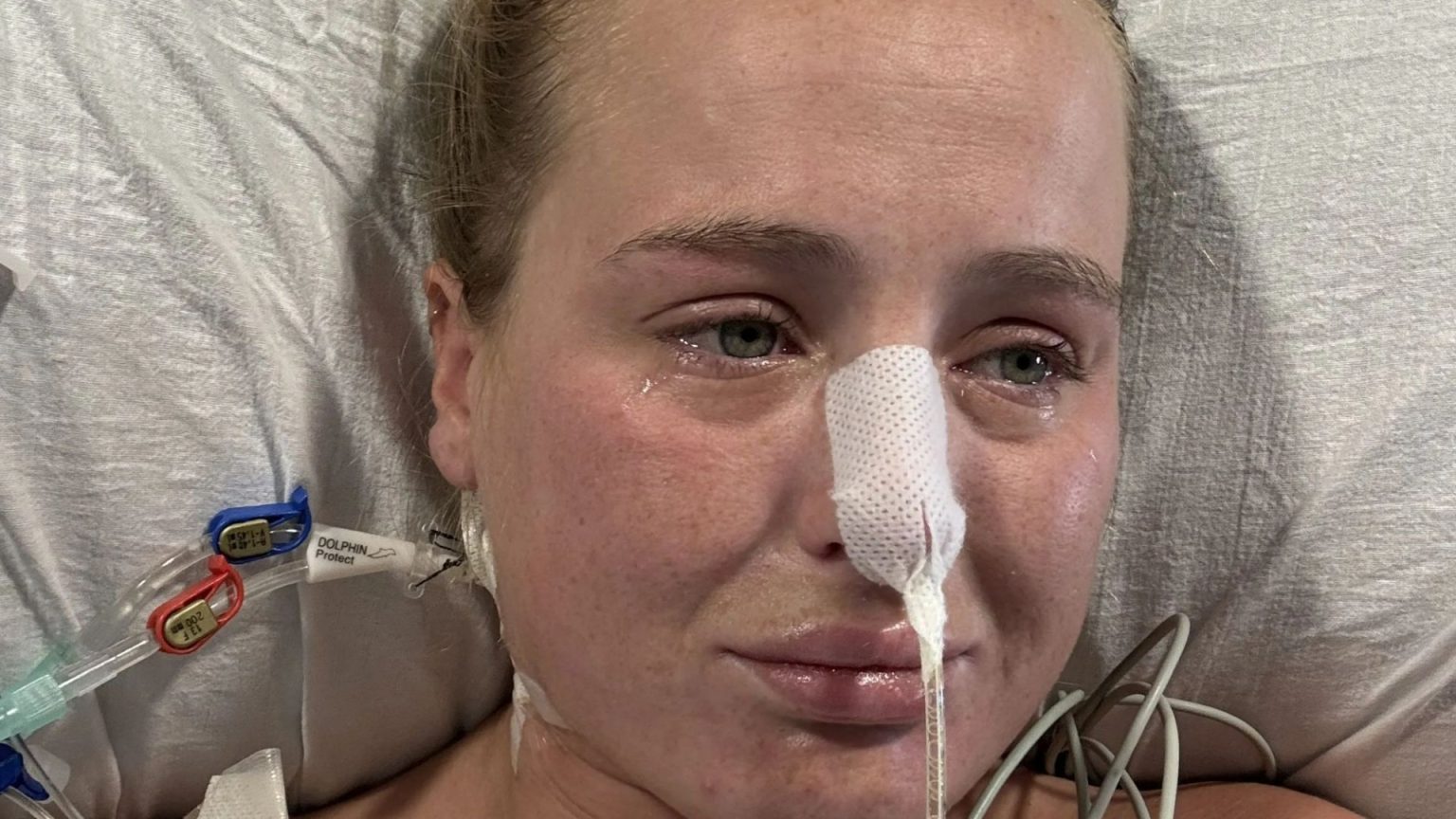Phoebe Rowe’s anticipated romantic getaway to Tenerife with her partner, Ryan Butler, transformed into a harrowing medical emergency when seemingly innocuous stomach pains escalated into a life-threatening battle with necrotizing pancreatitis. Five days into their holiday, Phoebe, a 22-year-old from Leamington Spa, began experiencing abdominal discomfort, which she initially dismissed as a recurrence of a urinary tract infection she had experienced months earlier. Opting for over-the-counter pain relief to manage the discomfort and salvage the remainder of their trip, Phoebe unknowingly masked the symptoms of a far more serious condition.
The following morning, Phoebe awoke to agonizing stomach pain, vomiting, and a fever. Recognizing the severity of her symptoms, she sought medical attention at a local hospital. There, she received the shocking diagnosis of pancreatitis, an inflammation of the pancreas. Further examination revealed the devastating truth: Phoebe was suffering from severe necrotizing pancreatitis, a condition where a significant portion of the pancreas dies. In Phoebe’s case, a staggering 90% of her pancreas had been affected. Hospital staff immediately transferred her to intensive care, where they drained four liters of toxic fluid that had leaked from her damaged pancreas and spread to other organs.
The gravity of Phoebe’s condition became starkly apparent when doctors informed her loved ones that her chances of survival were slim. She remained in intensive care for three weeks, battling the life-threatening complications of her illness. Against all odds, Phoebe’s condition began to improve, earning her the moniker of a “walking miracle” from the medical staff who witnessed her remarkable recovery. While her health stabilized enough for her to return to the UK, the ordeal left a lasting impact, requiring her to remain on medication for the rest of her life.
Reflecting on the events that unfolded during her holiday from hell, Phoebe recounted the initial dismissal of her symptoms, attributing them to a previous UTI. The rapid escalation of her condition, from manageable discomfort to excruciating pain and vomiting, underscored the insidious nature of pancreatitis. The delayed diagnosis, coupled with the severity of the necrotizing form of the disease, placed Phoebe in a perilous situation. She later learned that had she attempted to fly home or delayed seeking medical attention any longer, the outcome could have been fatal.
Phoebe now believes that her ordeal might have been avoided had she pursued medical investigations earlier. She had experienced changes in her bowel habits the previous year, which were initially attributed to non-alcoholic fatty liver disease. In retrospect, she suspects these symptoms may have been early indicators of the developing pancreatic issue. Her experience serves as a cautionary tale, highlighting the importance of seeking medical advice for any persistent or concerning changes in bodily functions.
Phoebe’s story emphasizes the critical need for prompt medical attention when experiencing severe abdominal pain, a key symptom of pancreatitis. Her near-fatal experience underscores the potentially devastating consequences of delaying diagnosis and treatment. While most cases of pancreatitis resolve within a week, severe cases like Phoebe’s can lead to life-threatening complications. The rapid deterioration of her condition highlights the importance of recognizing the signs and seeking immediate medical care. Her story serves as a powerful reminder to advocate for one’s own health and to push for answers when experiencing unexplained symptoms, ensuring timely intervention and potentially preventing a similar near-tragedy.




